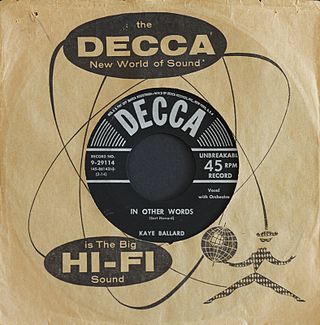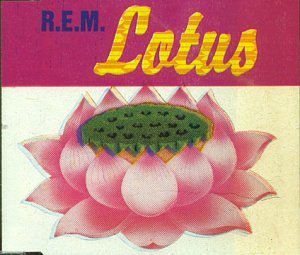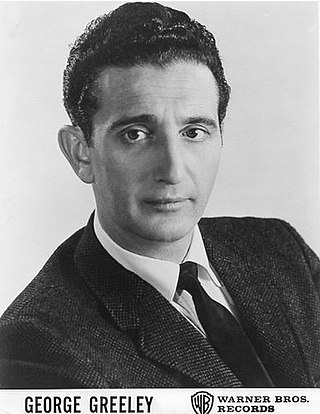Related Research Articles

Connie Stevens is an American actress and singer. Born in Brooklyn to musician parents, Stevens was raised there until age 12, when she was sent to live with family friends in rural Missouri after she witnessed a murder in the city. In 1953, at age 15, Stevens relocated with her father to Los Angeles.

Arthur Alexander was an American country-soul songwriter and singer. Jason Ankeny, music critic for AllMusic, said Alexander was a "country-soul pioneer" and that, though largely unknown, "his music is the stuff of genius, a poignant and deeply intimate body of work on par with the best of his contemporaries." Alexander's songs were covered by such stars as the Beatles, the Rolling Stones, Bob Dylan, Gerry and the Pacemakers, Otis Redding, Tina Turner, Pearl Jam, and Jerry Lee Lewis.

"Fly Me to the Moon", originally titled "In Other Words", is a song written in 1954 by Bart Howard. The first recording of the song was made in 1954 by Kaye Ballard. Frank Sinatra's 1964 version was closely associated with the Apollo missions to the Moon.

77 Sunset Strip is an American television private detective drama series created by Roy Huggins and starring Efrem Zimbalist Jr., Roger Smith, Richard Long and Edd Byrnes. Each episode was one hour long when aired with commercials. The show ran from 1958 to 1964. The character of detective Stuart Bailey was first used by writer Huggins in his 1946 novel The Double Take, later adapted into the 1948 film I Love Trouble.
Warner Records Inc. is an American record label. A subsidiary of the Warner Music Group, it is headquartered in Los Angeles, California. It was founded on March 19, 1958, as the recorded music division of the American film studio Warner Bros.

The Lettermen are an American male pop vocal trio whose trademark is close-harmony pop songs with light arrangements. The group started in 1959. They have had two Top 10 singles, 16 Top 10 singles on the Adult Contemporary chart, 32 consecutive Billboard chart albums, 11 gold records, and five Grammy nominations.

"Lotus" is a song by American rock band R.E.M., released as the second single from their eleventh studio album, Up (1998). The song is somewhat minimalist, with Michael Stipe singing surreal lyrics in a percussive manner. It builds on a four-note keyboard part, with a distorted guitar riff at the beginning and after the second chorus. The song's recurring line "I ate the lotus" appeared in an alternate form in a previous R.E.M. song, "Be Mine". The line "dot dot dot and I feel fine" is a reference to R.E.M.'s 1987 hit "It's the End of the World as We Know It ".

"This Kiss" is a song by American country music singer Faith Hill from her third studio album Faith. It was written by Beth Nielsen Chapman, Robin Lerner and Annie Roboff, and produced by Hill and Byron Gallimore. It was released on February 23, 1998, as the album's first single.

Joanie Sommers is an American singer and actress with a career concentrating on jazz, standards and popular material and show-business credits. Once billed as "The Voice of the Sixties", and associated with top-notch arrangers, songwriters and producers, Sommers' popular reputation became closely tied to her biggest, yet most uncharacteristic, hit song, "Johnny Get Angry".
Don Ralke was an American music arranger, composer, and record producer, working for four decades in the Hollywood studio system in films, television, and pop recordings.

"Can't Stop Lovin' You" is a song by American band Van Halen. It was released in March 1995 as the third single from their 10th album, Balance (1995). The song emerged after producer Bruce Fairbairn asked for a more pop-oriented song. Instead of searching for his archives, Eddie Van Halen decided to write new music from scratch. The song was written by all members of Van Halen and pays homage to Ray Charles' song "I Can't Stop Loving You", particularly in the line where Sammy Hagar sings "Hey Ray, what you said is true..."

"I'm Gonna Be Warm This Winter" is a 1962 single by Connie Francis, released in that December to peak at #18 on both the Billboard Hot 100 and the Cash Box Top 100. The song reached #22 UK in December 2008 via a remake by Gabriella Cilmi titled "Warm This Winter".

George Greeley was an Italian-American pianist, conductor, composer, arranger, recording artist and record producer who is known for his extensive work across the spectrum of the entertainment industry. Starting as an arranger and pianist with several notable big bands in the 1940s, he segued into the Hollywood radio scene, working on several nationally broadcast variety programs. After conducting an Army Air Force Band during World War II, he was hired by Columbia Pictures as a staff pianist and orchestrator. He worked as pianist on several hundred motion pictures, worked with many famous composers orchestrating their soundtrack compositions, and created original compositions of his own in several dozen movies. It was Greeley's hands that performed the piano parts that Tyrone Power mimed in The Eddy Duchin Story. Concurrent with his work at Columbia Pictures, George Greeley also worked at Capitol Records as music director, pianist, and conductor for many artists such as Gordon MacRae, Jane Powell, Jo Stafford, Frankie Laine, and Doris Day. He was hired in the late 1950s by the newly established Warner Brothers Records. George Greeley arranged, orchestrated and performed as primary artist for a series of hit recordings entitled "Popular Piano Concertos." As music tastes changed in the late 1960s, Greeley had already moved into television, composing themes and music for popular TV series like My Favorite Martian,The Ghost and Mrs. Muir,Nanny and the Professor, and Small Wonder. He performed as featured piano soloist and as guest conductor in concert appearances around the world. He died from emphysema at age 89 in Los Angeles, California.

This is the discography of American pop singer Connie Francis. Throughout her career, she has sold 100 million records worldwide. In 1959, she was recognized as the then best-selling female recording artist in Germany and was once hailed as the worlds best-selling female vocalist in history at that time. She was the first woman to reach #1 on Billboard Hot 100. Billboard ranked her as the 8th Top Artist of the Decade (60s).

"Sixteen Reasons (Why I Love You)" is a list song written by Bill and Doree Post in 1959 recounting sixteen reasons for being in love, beginning "The way you hold my hand", which in 1960 reached #3 via a recording by Connie Stevens.

The albums discography of Connie Smith, an American country artist, consists of 39 studio albums, one live album, 14 compilation albums, three box sets, and 26 other appearances. After the success of her 1964 single "Once a Day", Smith's self-titled debut album was released in March 1965 on RCA Victor Records. The album reached number one on the Billboard Top Country Albums, spending thirty weeks on the chart, while also becoming her only album to reach the Billboard 200 list (#105). Smith's next two secular albums, Cute 'n' Country and Miss Smith Goes to Nashville went to number one and number two respectively between 1965 and 1966. In September 1966 Smith released her fifth studio album, Born to Sing, which was her third album to reach the top spot on the Billboard country albums chart. Due to Smith's popularity, RCA Victor issued five albums between 1967 and 1968 including Downtown Country (1967), Connie Smith Sings Bill Anderson (1967), and I Love Charley Brown (1968). In 1969, Smith collaborated with country artist Nat Stuckey on the album Young Love.
Bill Haley & His Comets recorded many singles and albums. The following list references only their original release and generally does not include compilation albums or single reissues. This list does not include releases on which the Comets worked as session musicians, and primarily focuses on releases during Haley's lifetime.

The albums discography of Wanda Jackson, an American recording artist, consists of 44 studio albums, 37 compilation albums, four live albums, one video album, two box sets and has appeared on 26 albums. In 1954 at age sixteen, Jackson signed with Decca Records as a country music artist. The label did not issue a record until the 1962 compilation Lovin' Country Style, six years after Jackson left Decca. She signed with Capitol Records in 1956, and her self-titled debut studio album was released three years later. Although Jackson had recently been identifying herself as a rock-and-roll performer, the album consisted of country music recordings. However, it did contain Jackson's future rock-and-roll hit "Let's Have a Party", which was a hit in 1960, reaching the Top 40 on the Billboard Pop chart. The success of her rock-and-roll recordings led to the release of two more rock-and-roll studio LPs: Rockin' with Wanda (1960) and There's a Party Goin' On (1961). Additionally, Capitol issued two "split" studio albums which contained rock and roll on one side and country music on the other.

The Best of Crystal Gayle is a compilation album by American country music artist Crystal Gayle. It was released in August 1987 on Warner Bros. Records. The album contained Gayle's major hit singles while recording for the latter label between 1982 and 1986. She would depart from Warner Bros. the following year.
"Kookie, Kookie " is a song written by Irving Taylor and performed by Edward Byrnes and Connie Stevens. The single was produced by Karl Engemann and arranged by Don Ralke, and was featured on Byrnes' 1959 album, Kookie Star of "77 Sunset Strip".
References
- ↑ "Connie Stevens chart positions". Billboard . Archived from the original on October 14, 2020.
- ↑ "Connie Stevens". The Official Charts Company.